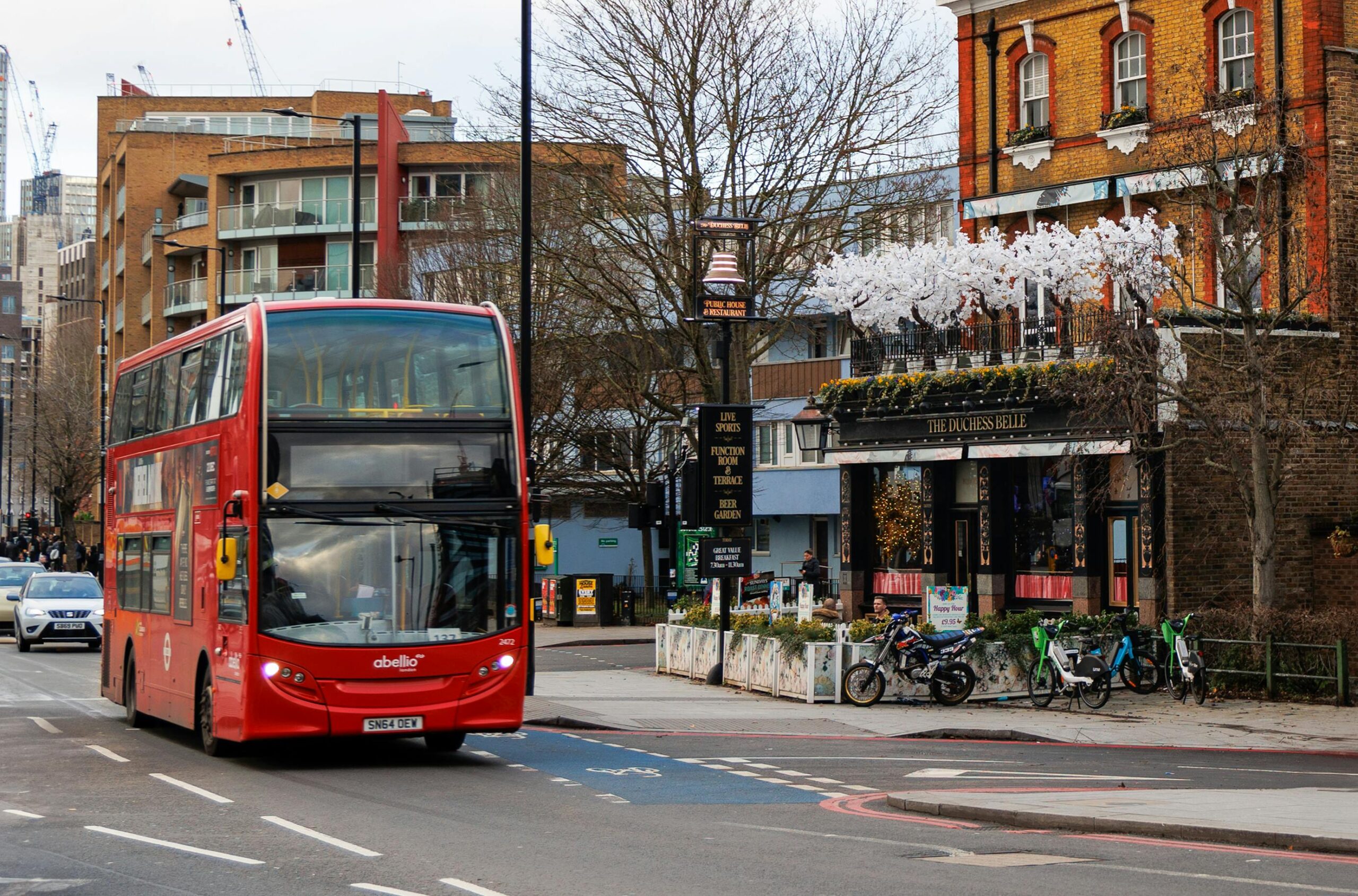Has the thought of studying in the UK ever crossed your mind?
It certainly crossed mine about 8 years ago! Since then, wanting to study in the UK became a dream.
I didn’t even know what I wanted to study, but I was sure about wanting to study in the UK. So, I embarked in pursuit of this dream.
In this article, I will share the top need-to-knows, tips if you like, for international students like yourself planning to study in the UK. I have broken it down into 5 main points, basing it on my personal experience.
1. Most UK Universities Accept your Local Education System Results
I studied the Kenyan education system throughout my school life.
It used to be called 8-4-4, 8 years of primary school, 4 years of secondary school, and 4 years of university. The government has now changed this to a “competency-based” 2-6-3-3-3 system. 2 years of pre-primary, 6 years of primary school, 3 years of junior secondary, 3 years of senior secondary, and finally, 3 years of university or any other form of tertiary education.
I achieved an overall A minus (A-) grade in the Kenya Certificate of Secondary Education (KCSE) final exam, equivalent to A Levels in the British Education System. I had scored 80 points out of 84, missing out on a plain A by 1 point.
When I looked into Coventry University’s entry requirements, I realised that they accept my KCSE results for entry straight into year 1 of Mechanical Engineering.
I should mention, that I have studied Mechanical Engineering in the UK up to Master’s level.
So, contrary to the popular misconception, you might not have to do a foundation year even if you completed high school in your local education system.
This is if you have achieved the required grades.
It also depends on which country you are from.
When choosing a university, I would recommend checking the entry requirements. You may well save yourself having to do a foundation year.
If in doubt, don’t hesitate to email the university’s Admission Team to clarify. If you use an education consultant, which I highly recommend (but more on this in Section 2), they’ll do this for you. As an example, this is the link to Coventry University’s entry requirements for countries in Africa: Coventry University Entry Requirements – Africa
2. Use a Study Abroad Education Consultant
Study abroad education consultancies are a great help.
They’ll make a lot of the processes easy for you.
I used UNISERV, the number 1 education consultant in East Africa for study abroad.
UNISERV, if you are reading this article, a big shout-out!
I was confused about which specific field of engineering to pursue. Their career consultant helped me decide what to study.
They then helped me choose a university. I knew I wanted to stay in or near Birmingham. They provided me with university choices.
Key factors that I considered were tuition fees, and university ranking for Mechanical Engineering.
At the time, in 2018, Coventry University was ranked second in the UK for Mechanical Engineering by the Guardian.
The next step was applying for the course, which they took care of.
They also helped me meet the offer conditions.
Additionally, UNISERV was very good in that they did all the communication with the university. They asked the questions where I needed more clarity.
Universities form ‘partnerships’ with the consultants, give them ‘priority status’, and ask them to represent the university in their region. It means that these institutions respond to their students quicker than other applicants. It also means that they have a direct line of communication with these universities.
This is why I feel it’s important to have the support of someone experienced.
With their guidance, you can be sure that you have the best chance of getting accepted.
The UK student visa application process is straightforward I would say, but one that has many elements to it. It is easy to miss something.
The education consultants would have been through it multiple times. Them double-checking every step for you, assures you of success.
I intend to post another article on the UK student visa process in Kenya. It should be largely applicable and very similar in other developing countries.
Please subscribe to my email list (form given below this section), so you don’t miss when I post another article about studying in the UK as an international student. Stay tuned!
So yes, for these reasons, I would highly recommend using the services of an education consultant in your country.
All UNISERV services are completely free of charge. If you can find such an organisation that offers the best service without additional cost to your journey of going abroad, then you are in luck!
We are very fortunate that such an organisation exists in East Africa.
Any prospective applicants from Kenya, Tanzania, Uganda, or Rwanda, please make use of the services of UNISERV. I promise you won’t regret it.
3. Submit your Application Early
A safe bet is to submit your application at least 3 months before the start of your course.
You may get the conditional offer letter fairly quickly if you meet the entry requirements.
But, you will need some time to meet the offer conditions.
The IELTS (International English Language Testing System) exam will require the most time. This is an international standardised English Language test to prove the proficiency of non-native English speakers.
Back then in 2018, I had to travel to the capital of Kenya, Nairobi to take the IELTS test. The good news is, now there is an IELTS test centre in my home town, Mombasa (IELTS Test Centres in Kenya).
However, you still have to factor in time to find an appointment (you may not find an appointment immediately, depending on how busy the test centre is). And you will need to prepare for the test.
The other major condition is deposit payment. Whether you have this arranged or not, will determine how much time it takes you to meet this condition.
Meeting the offer conditions is fine, and how fast you do it is in your control.
The next step is for the university to assess that you’ve met the offer conditions, and to issue the Confirmation of Acceptance for Studies (CAS) letter.
This is where there is a high potential for delays.
It is very frustrating that it is out of your control as well.
All you can do is hope that the university processes your application quickly.
Hence, the advice is to allow plenty of time for all of these processes.
Most universities say that they take up to 10 working days to issue the CAS. However, a big disclaimer always goes something like “Please note that at peak times the CAS processing team is very busy and there may be delays”.
I have heard of students at Coventry University who waited up to 2 months for their CAS. Such situations could risk you not receiving your student visa on time for the start of your course.
This emphasises the benefit of using the services of an education consultant. If they hold “priority agent” status with the university of your choice, they’ll have a direct line of communication. Responses and your application processing will be much faster if you do it through them.
The CAS is the equivalent of an unconditional offer for international students. It is a required document for student visa application. You cannot apply for a student visa without the CAS.
Once you’ve received your CAS, the next step is to apply for the student visa.
Your education consultant will guide you through the application procedure.
It is quite straightforward. You can find out all about the procedure on the UK government website – Study in the UK on a Student Visa.
From the time you submit your biometrics at the visa application centre, it usually takes up to 3 weeks to get a decision.
This is pretty reliable. However, as I’ve said in this section, if you have started your application process well in advance, you won’t be bothered by the extremely rare possibility of a delay in your decision.
By the way, you can apply for a visa up to 6 months before the start of your course (it was 3 months when I applied).
Depending on your nationality, 1 more step most of you will have to do is a tuberculosis (TB) test. You will need to include the certificate as evidence in your application. Countries where you need a TB test for student visa.
The annoying part is the only approved clinic for the test in Kenya is the International Office of Migration (IOM) Kenya in Nairobi.
Thankfully, I didn’t have to travel to Nairobi twice. I did my IELTS exam and TB test during the same trip.
Again, thank God for UNISERV. If I had done this on my own, I would have never realised that there is another step in the process that requires me to be in Nairobi. Saved myself an extra trip to Nairobi, phew.
Going back to how long it takes to get a visa decision, there is the option of a priority visa. You get a decision within 5 working days. But at an extra £500.
What’s the point, when it is as simple as submitting your application in plenty of time?
I’m sure you can find much better use of the £500 rather than ‘wasting’ it to get a faster visa decision.
Oh and not to forget, there is a super priority option as well. Here you get a decision the next working day after attending your biometrics appointment. At an extra whooping £1000. Can you imagine, £1000! Unbelievable! No need to put yourselves in this situation.
4. Scholarship/Tuition Fee Discount
When applying, be sure to check on the university’s website for scholarships that you could be eligible for.
At the undergraduate level, it is very rare for the university to offer a significant scholarship.
The scholarship offered would normally take the form of a bursary, ranging in amount between £2000 – £5000 (maybe a bit more depending on the university).
I know considering tuition fees in the UK for international students, this doesn’t seem like much. But any amount matters and is invaluable. Any little adds up.
These scholarships are offered under different categories: academic excellence, sports, and even nationality.
A university may offer scholarships to students from a particular region.
If you play a sport at a competitive level, you may well be eligible for a sports scholarship.
If you are struggling to find a suitable scholarship on the university’s website, then ask the question to the Admissions Team. They may have a funding opportunity that you may not be aware of. You’ll never know if you don’t ask.
For example, I got a £2000 scholarship for my first and second years. I had asked through my agent if the Admissions Team could consider me for an award given my good high school results.
Also, another thing to note is a lot of these scholarships are offered for the first year only. Make sure you plan for this and prepare how you are going to fund the amount in subsequent years.
If you manage to secure a scholarship that runs each academic year, then great! You are in luck!
You can also search for external scholarships. These normally tend to cover a significant proportion of your study costs, including tuition fees, maintenance expenses, and even a return airfare. Their aim is usually to support students from disadvantaged backgrounds.
However, to manage expectations, scholarships provided by external organisations are scarce, very hard to find, and very competitive. But, this is not to say that you should not try. Always try, who knows, you may stumble upon an exceptional opportunity.
Another point to note is a discount for early payment of tuition fees.
Most universities offer a small discount if you pay your full tuition fees upfront, before the start of your course.
Coventry University is very generous with this. They offer a £2000 discount for paying just the deposit before a certain date. For most other universities, I’ve seen the early payment discount ranging between 1-5% of the tuition fee.
5. Accommodation
Sort out your accommodation well on time, and definitely before you travel to the UK.
I know some cases where students have either relatives or friends in the UK. They travel to the UK hoping to stay temporarily at their place while they look for accommodation.
Unless you are going to stay permanently at your relative’s/friend’s place, this is not a good idea.
It will be much harder to find accommodation once the term has started.
Most university accommodation (halls of residence) and private student accommodation will be full by this time.
You’ll also struggle to find a room in a shared student house, as most students would have moved in, ready for the start of the academic year.
Looking for a room/house to rent is no easy feat. There is a lot involved in it, and it takes time. To begin with, finding one that matches your requirements is a big task on its own.
Don’t expect to find a place that suits your needs immediately, unless you are very lucky.
The rental market in the UK is increasingly competitive, especially in recent years.
This is why the earlier you sort out your accommodation, the better.
Not to mention the added pressure of the start of your course. You’d want to stay on top of it to gain the most out of your studies and to perform well.
Imagine having to juggle keeping up with your studies and looking for a place to stay. It is not a pleasant situation. It will become very difficult to cope.
Before the start of your academic year, you want to have settled in, become familiar with where you are staying, set a routine, ready to fire all your cylinders as soon as term starts.
For your first year of uni, I would recommend staying in student accommodation. They are normally furnished to a good standard, and utility bills including WIFI are included in the rent. You’ll get to socialise with other students and easily make new friends as well.
You can book your accommodation as early as immediately after receiving your CAS.
A lot of the accommodation providers offer a visa money-back guarantee. On the extremely rare occasion that your visa gets rejected, you get your deposit/full rent back. However, please double-check that this guarantee is being offered before booking (if you are booking before receiving your visa).
You get good discounts and cashback offers as well for booking early. This can help you make a significant saving on your annual accommodation cost.
I’ll do an article on accommodation options for students to help you choose the type that suits you best.
Conclusion
Moving abroad is exciting and challenging at the same time.
The process involves multiple steps, and you will have to overcome some challenges along the way too.
Try and have as much information as possible for each step, so you can be confident in what you are doing.
It may feel overwhelming at times, but be patient. It will be worth it. I have always believed the UK is a land of opportunity.
I will try to help as best as I can by sharing lessons that I have learnt from my journey.
Remember what I have talked about in this article.
Most UK universities accept local education system results for certain countries for entry straight into first-year.
Use the services of an education consultant to support you through the application process.
Aim to submit your application 3 months before the start of your course.
Check for scholarships when applying. Try and pay the deposit/full tuition fees early to get a discount.
Sort out your accommodation well on time, and definitely before you travel to the UK.
Have you started thinking about your journey to the UK? Which universities are you considering?



